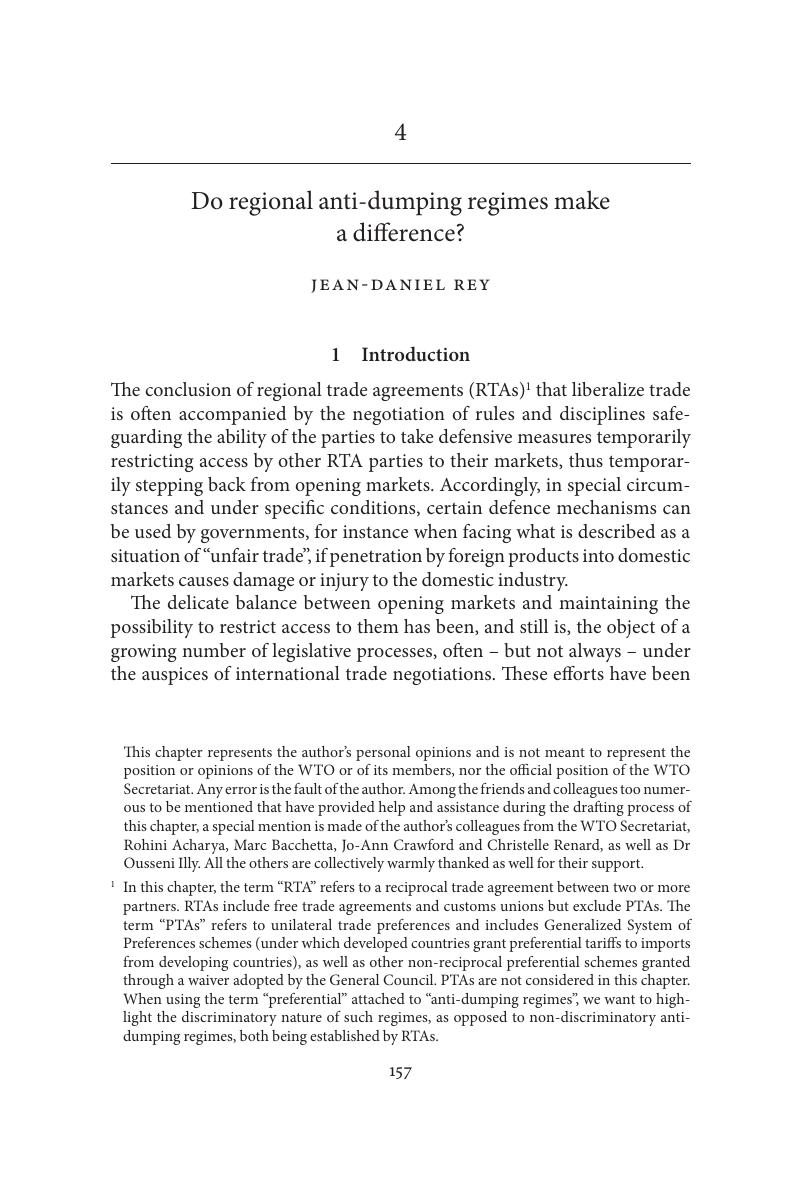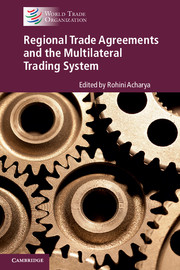Book contents
- Regional Trade Agreements and the Multilateral Trading System
- Regional Trade Agreements and the Multilateral Trading System
- Copyright page
- Contents
- Figures
- Tables
- Annex tables
- Notes on contributors
- Foreword by Roberto Azevêdo
- Acknowledgements
- Abbreviations and acronyms
- Disclaimer
- Introduction Regional trade agreements: recent developments
- Part One Trade in goods and services
- 1 Market access provisions on trade in goods in regional trade agreements
- 2 Preferential rules of origin in regional trade agreements
- 3 Trade facilitation under the regional trade agreement umbrella:
- 4 Do regional anti-dumping regimes make a difference?
- 5 Mapping of safeguard provisions in regional trade agreements
- 6 Cross-cutting issues in regional trade agreements: sanitary and phytosanitary measures
- 7 Technical barriers to trade provisions in regional trade agreements:
- 8 Services rules in regional trade agreements:
- Part Two Other provisions
- Index
- References
4 - Do regional anti-dumping regimes make a difference?
from Part One - Trade in goods and services
Published online by Cambridge University Press: 24 September 2016
- Regional Trade Agreements and the Multilateral Trading System
- Regional Trade Agreements and the Multilateral Trading System
- Copyright page
- Contents
- Figures
- Tables
- Annex tables
- Notes on contributors
- Foreword by Roberto Azevêdo
- Acknowledgements
- Abbreviations and acronyms
- Disclaimer
- Introduction Regional trade agreements: recent developments
- Part One Trade in goods and services
- 1 Market access provisions on trade in goods in regional trade agreements
- 2 Preferential rules of origin in regional trade agreements
- 3 Trade facilitation under the regional trade agreement umbrella:
- 4 Do regional anti-dumping regimes make a difference?
- 5 Mapping of safeguard provisions in regional trade agreements
- 6 Cross-cutting issues in regional trade agreements: sanitary and phytosanitary measures
- 7 Technical barriers to trade provisions in regional trade agreements:
- 8 Services rules in regional trade agreements:
- Part Two Other provisions
- Index
- References
Summary

- Type
- Chapter
- Information
- Regional Trade Agreements and the Multilateral Trading System , pp. 157 - 229Publisher: Cambridge University PressPrint publication year: 2016
References
- 1
- Cited by

